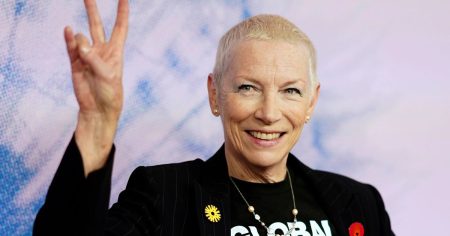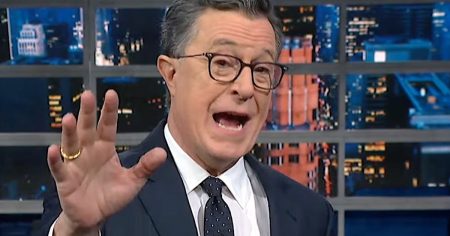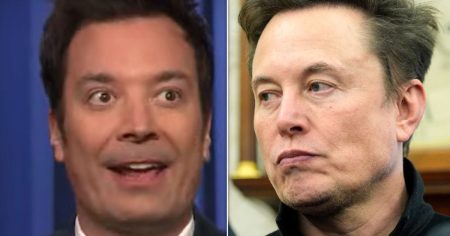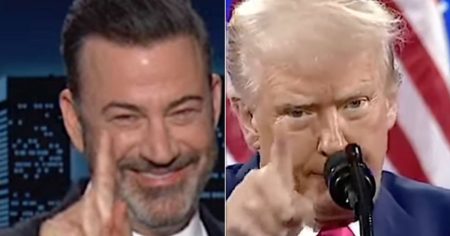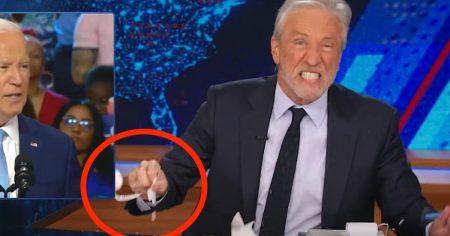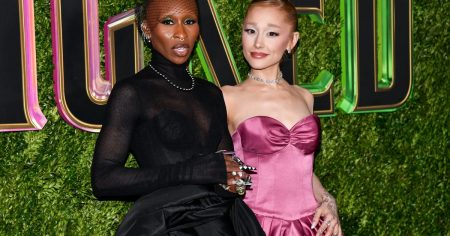Understanding Trump’s Comments on Bullies and His Own History
During a White House event, former President Donald Trump made a surprising statement about bullies, declaring, "You know bullies? You know what a bully is, right? A bully is the weakest person." This pronouncement was met with widespread surprise, particularly given Trump’s well-documented history of engaging in behavior that many would describe as bullying. His words sparked a wave of reactions, with many questioning whether Trump possesses any self-awareness at all. Among those who weighed in was late-night talk show host Jimmy Kimmel, who expressed disbelief at Trump’s statement. Kimmel drew a striking comparison, suggesting that Trump’s behavior and persona were eerily reminiscent of Biff Tannen, the iconic bully from the Back to the Future film franchise.
Jimmy Kimmel’s Reaction and the Biff Tannen Comparison
Kimmel’s monologue on the matter began with a mix of astonishment and humor, as he remarked, "Does he have any self-awareness at all? The character of Biff in Back to the Future is based on him, and that was 30 years before he became president." For fans of the Back to the Future trilogy, the comparison was both apt and amusing. Biff Tannen, played by Thomas F. Wilson, is the quintessential bully, known for his arrogance, aggressive behavior, and a penchant for intimidating others to get his way. What makes Kimmel’s observation even more intriguing is that Bob Gale, the co-creator and screenwriter of the Back to the Future series, had previously confirmed in 2015 that Biff was indeed inspired by Trump’s public persona. This revelation adds a layer of irony to Trump’s recent comments, as it suggests that his behavior has long been associated with the traits of a classic bully.
The Irony of Trump’s Statement on Bullies
Trump’s assertion that bullies are weak is particularly striking given his own history of using aggressive and belittling language to demean others. Throughout his career, both in business and politics, Trump has been known for his combative style, often lashing out at critics, opponents, and even allies who fail to align with his views. His use of social media platforms like Twitter has been particularly notable, as he frequently resorts to name-calling, personal attacks, and other tactics that many would classify as bullying. This disconnect between his words and actions raises questions about whether Trump genuinely believes his own statements or if he is simply attempting to reshape public perception.
The Significance of the Biff Tannen Parallel
The comparison between Trump and Biff Tannen is not merely a surface-level joke; it speaks to a deeper aspect of their shared behavioral traits. Like Biff, Trump has often used his wealth, influence, and public platform to assert dominance and silence others. Both figures are known for their exaggerated confidence, a tendency to bend the truth, and a reliance on intimidation to achieve their goals. In Back to the Future, Biff’s bullying is portrayed as both comedic and nefarious, but it also serves as a cautionary tale about the dangers of unchecked arrogance and the abuse of power. Similarly, Trump’s behavior has been the subject of much scrutiny, with critics arguing that his actions set a poor example for young people and undermine the values of empathy and kindness.
The Broader Implications of Trump’s Remarks
Trump’s comments on bullies also highlight a larger issue: the impact of public figures on societal norms and behavior. As a former president and a highly influential figure, Trump’s words carry significant weight, and his statements on bullying are no exception. While Trump may frame himself as an anti-bullying advocate, his own history of belittling others complicates this narrative. It is this inconsistency that makes his recent remarks so jarring, as they seem to contradict the very behavior he has exhibited over the years. This disconnect is not just a matter of personal hypocrisy; it also reflects a broader cultural conversation about the role of leadership and the importance of leading by example.
A Reflection on Leadership and Accountability
Trump’s remarks on bullies serve as a reminder of the importance of self-awareness and accountability in leadership. For public figures like Trump, words and actions have real-world consequences, shaping perceptions and influencing behavior. While humor and pop culture references can provide a lens through which to analyze such issues, they also underscore the need for deeper reflection. By comparing Trump to Biff Tannen, Kimmel and others are not just making a joke; they are highlighting the dangers of unchecked ego and the importance of fostering empathy and understanding. As society continues to grapple with the complexities of leadership and identity, moments like these serve as a reminder of the power of words—and the need for leaders to practice what they preach.






